Greetings, my pawsome human minions.
Forrest Wisewhiskers here again with the cat facts your noggin lacks. And today, we discuss drool. The soggy subject is on my mind and my fur because my cousin, Rhubarb, has come to stay with us for a week or so.
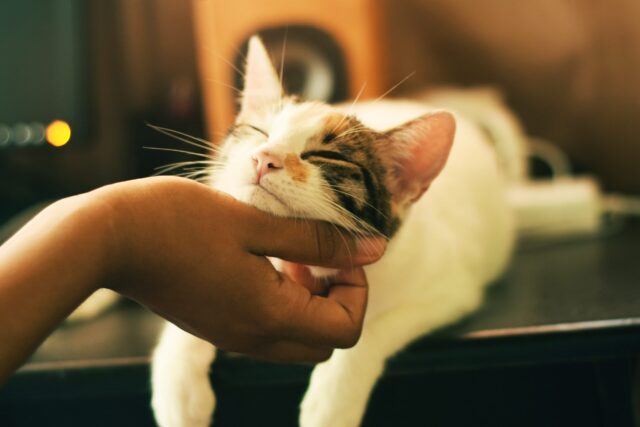
He’s my mom’s sister’s cat and one fine houseguest. He respects my preferred spots, shares food with no issues, and even keeps to his corner of the litter box. Plus, we’re of a similar age, so we have aligned interests, mainly napping, snacking, and watching birds from the window. And our mothers are too cute watching us, just going to absolute pieces when they see us curled up in a nap together.
Plus, Rhubarb and my auntie always bring offerings of new toys with them. So, it’s good when they come. But as much as I enjoy Rhubarb, he’s got this one habit that vexes me and sometimes leaves my fur soggy.
Rhubarb is a drooler. And not just a few drips here and there. We’re talking puddles left on shirts and spots where he finds happiness. He tends to drool on me when we curl up together, but I’ve learned to forgive it even though this boy could drown you in his slobber. I bet you know a cat like Rhubarb too. And I bet your human mind just burns to know why some cats drool so much. Like anything a cat does, there’s a reason.
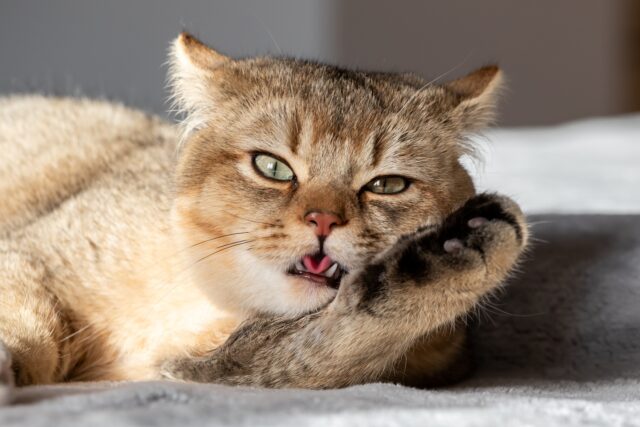
Reasons Behind Cat Drooling
There are plenty of reasons for drooling in cats. And while some of them are no reason for alarm, some drooling may warrant a trip to the vet. Typically, a cat parent can tell the difference between bad drooling and the happy kind, but still, some of the reasons can be tricky to pinpoint. You know your cat better than anyone else, so you’ll know when drooling is a problem or if it’s just one of your kitty overlord’s eccentric quirks.
Dental Disease
Does your cat have rank breath? Or discolored teeth? Red gums? There’s your reason for the drooling—dental disease. If your kitty has any of these issues or has started ignoring their hard kibble, chewing on only one side, or their drool is tinged with blood, it’s time to visit the vet for help because that mouth is feeling rough. As a kitty who once had a rotten tooth, dental problems are a real pain.
RELATED: 9 Dental Problems To Watch For In Cats
Injury and Pain
A cat that suffers an injury to the mouth, whether a soft tissue injury or a fracture of some sort, will often drool. Cats with mouth and jaw injuries might also pant, cry out, have dilated eyes, and even try to hide. These types of damage need immediate medical attention. Call the vet right away if you suspect your cat is drooling from an injury to the mouth.
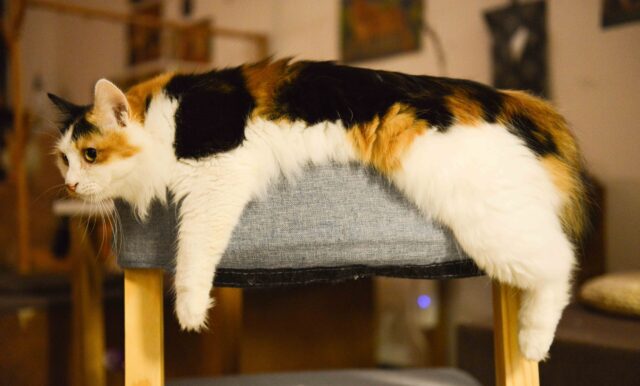
Underlying Illness
As an informed cat minion, you’re well aware that cats are masters at hiding illness. Anything from neurological issues to cancer to diabetes can bring about drooling in cats, as nausea is a common symptom of many diseases. And with a queasy belly comes increased saliva production, which can lead to drooling. If your cat starts drooling and isn’t acting like their usual regal self, a visit to the vet for a check-up might be a good idea.
A Kitty Cold
Cats and upper respiratory infections are a common combination. And since kitty colds come with watery eyes and congestion, drooling can happen. I know humans have this issue with drooling when congested, too, because once, when my dad had a cold and his nose was stuffy, he had his mouth hanging open so he could breathe, and he drooled right down the front of his shirt. I laughed so hard😹.
A Case of Nerves
Nervous cats can be drooly too. For example, it’s time to go for a ride to the vet. Bringing out the cat carrier can spark anxiety because your cat associates it with things they don’t care for, like the car and the vet’s office. And when some kitties feel anxious, they’ll salivate more, and then here comes the drool. If your cat is one of the unlucky ones who experience motion sickness in the car, nerves and nausea can combine to create a real spit storm.
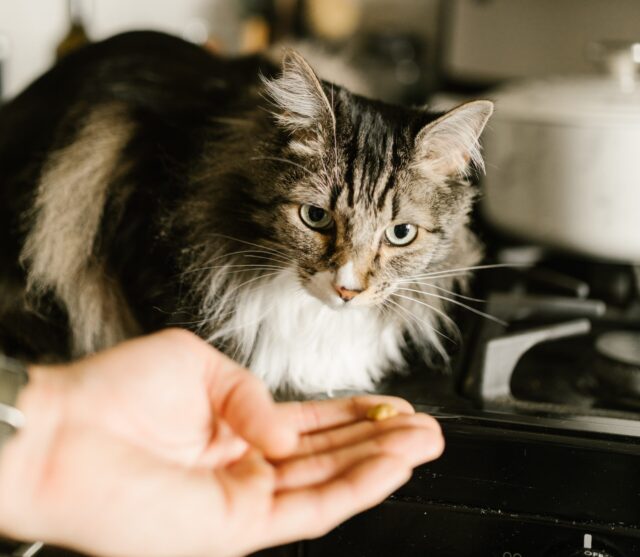
The Anticipation of Something Tasty
This reason for cat drooling is pretty apparent. I mean, when you see something yummy, your mouth waters too. For some felines, the salivary glands are set on high regarding food, and they’ll drip in anticipation. And yes, I’m aware that this is something dogs do as well, but please, how can you compare something as refined as a feline to a common hound? Blech. Don’t even try.
Pure Contentment
Here, we come to the source of Rhubarb’s water works. Such a happy ginger cat, Rhubarb loves his life so much he drools his contentment. If your cat is like Rhubarb, you’ll notice their drooling is often accompanied by purring, smiling, rolling around, napping, and general happiness. But worry not, cat minion, there’s no harmful reason behind the drooling when it comes with obvious delight. It just means your furry one goes with the flow, literally.
RELATED: 7 Signs Your Cat Is Truly Happy
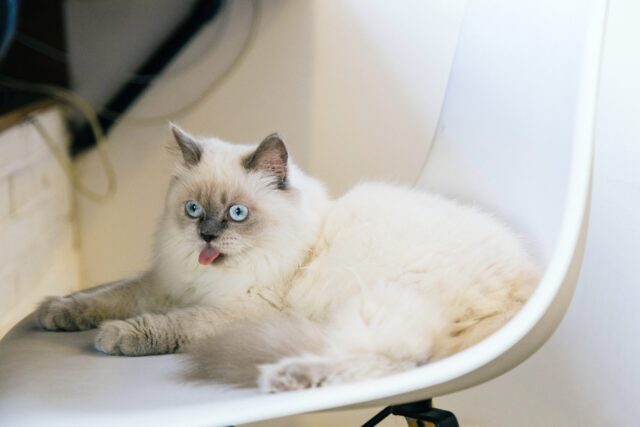
If you’ve got a drooly cat, watch for patterns in the drooling. Is your kitty a purry love bug when the spit flow begins? Are they just as happy as they can be? If you can answer such questions with a yes, then chances are, drooling isn’t a sign of a problem. But if the spit show is occurring with signs of discontent or without an apparent reason, have the vet check out your feline to rule out any illness or injury issues.
Now, if you want to get your kitty drooling, don’t forget to feed the cat!
